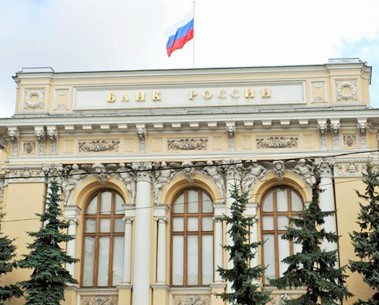
Russian Central Bank will not participate in European Central Bank’s QE program as it believes that interest rates are more likely to stimulate the crippled economy. The Chairperson of the Russian Central bank stated that the ECB’s QE program will rather fuel inflation and further increase the capital outflows. Currently, the Russian economy is struggling from rising inflation and sliding growth rate. The economic and financial turmoil resulting from the Western sanctions and drastic decline in crude oil prices has distressed the Russian economy. With the aim to control the mounting inflation Russia’s bank will be decreasing its key interest rate further which is currently at 14%.
Eventhough, higher interest rates propels the currency but it makes loans more expensive which in turn damages the economy. During the year 2014, the Russian bank raised its interest rates for almost 6 times reaching the mark of 17% in December. But now in 2015 the bank implemented monetary easing and hence lowered its interest rates two times.
The Russian currency, Ruble witnessed huge selloffs as a result of increasing economic worries and therefore the currency became the worst performer in 2014 even though necessary were measures adopted by the central bank. Moreover, the banks also sold its US dollar reserves with the aim to boost its currency ruble against dollar. The Russian central bank expected a sharp drop in inflation rate of Russia. However, the weaker currency fuelled the consumer prices which reached the record mark of 16.9% in March. After recording a drastic slump of 46% in 2014, the ruble showed its best performance in 2015 among the developing markets. The currency substantially gained 10% this year against dollar.
The collapse in crude oil prices coupled with the Western sanction dragged down the Russian currency. The crude oil prices plummeted by about 50% during the last six months of 2014. But, the sudden hike of interest rate by the central bank was not successful in stopping the declining ruble. The first quarter of 2015 was marked by rallying ruble, although crude oil did not play a vital role in stimulating the currency.
The Russian banking sector is considered to be quite stable. The significant amount of capital maintained by the banks is sufficient enough to withstand serious shocks if the financial crisis deepened further. According to Elvira Nabiullina, the head of Russian Central Bank, the banking sector is stable enough to counter even the worst case scenario of crude oil price sliding to $40 per barrel.
The most important challenge faced by the Russian economy is mounting inflation. Nabiullina stated that adoption of QE measures at the time of high inflation and stable employment levels can further fuel inflation rate. The Russian Central Bank will be taking measures to attain economic stabilization by reducing interest rates which in turn will control the rising inflation.
Eventhough, higher interest rates propels the currency but it makes loans more expensive which in turn damages the economy. During the year 2014, the Russian bank raised its interest rates for almost 6 times reaching the mark of 17% in December. But now in 2015 the bank implemented monetary easing and hence lowered its interest rates two times.
The Russian currency, Ruble witnessed huge selloffs as a result of increasing economic worries and therefore the currency became the worst performer in 2014 even though necessary were measures adopted by the central bank. Moreover, the banks also sold its US dollar reserves with the aim to boost its currency ruble against dollar. The Russian central bank expected a sharp drop in inflation rate of Russia. However, the weaker currency fuelled the consumer prices which reached the record mark of 16.9% in March. After recording a drastic slump of 46% in 2014, the ruble showed its best performance in 2015 among the developing markets. The currency substantially gained 10% this year against dollar.
The collapse in crude oil prices coupled with the Western sanction dragged down the Russian currency. The crude oil prices plummeted by about 50% during the last six months of 2014. But, the sudden hike of interest rate by the central bank was not successful in stopping the declining ruble. The first quarter of 2015 was marked by rallying ruble, although crude oil did not play a vital role in stimulating the currency.
The Russian banking sector is considered to be quite stable. The significant amount of capital maintained by the banks is sufficient enough to withstand serious shocks if the financial crisis deepened further. According to Elvira Nabiullina, the head of Russian Central Bank, the banking sector is stable enough to counter even the worst case scenario of crude oil price sliding to $40 per barrel.
The most important challenge faced by the Russian economy is mounting inflation. Nabiullina stated that adoption of QE measures at the time of high inflation and stable employment levels can further fuel inflation rate. The Russian Central Bank will be taking measures to attain economic stabilization by reducing interest rates which in turn will control the rising inflation.





